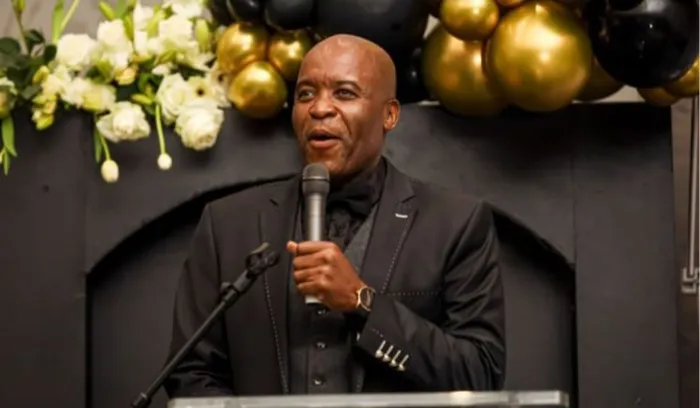
City of Tshwane Deputy Mayor and MMC for Finance, Eugene Modise tabled the City's 2025/206 budget, describing it as being pro-poor.
Image: Supplied
City of Tshwane Deputy Mayor and MMC for Finance, Eugene Modise, presented the 2025/2026 budget at Tshwane House on Thursday, describing it as pro-poor and service delivery-focused, with a R2.4 billion capital budget and a R52.2bn operational budget.
The budget includes R7.4bn in grant funding for the next financial year, broken down into R5.5bn for operational grants, R2bn for infrastructure, and R152 million for the newly introduced urban development financing grant.
Modise highlighted that the budget is fully funded, adding that the National Treasury has formally endorsed it as credible.
Regarding the upcoming tariffs for rates and services effective July 1, Modise said: “We have prioritised keeping rates as far and affordable as possible, ensuring that residents are not burdened with unreasonable increases.”
Electricity tariffs will rise by 10.1%, below the 11.32% bulk tariff increase from Eskom, while water charges will increase by 13%, lower than Rand Water's 15.13% hike.
Meanwhile, sanitation tariffs will increase by 6%, and waste removal tariffs will rise by 4.6%.
Modise explained that due to the increases, the new administration decided to reduce property rates by 4% to cushion residents from the impact of higher property valuations under the new general valuation roll.
He announced that the city's cleansing levy, a monthly fixed fee of R194 for households using private refuse collection, is aimed at improving urban cleanliness and waste management.
“Much has been made of this proposed cleansing levy. It must be noted that this levy is not new or unique to Tshwane. A cleansing levy was introduced some years ago and duly taken on judicial review in order for implementation to be regularised,” he said.
Both the DA and AfriForum have opposed the proposed levy, criticising it as an additional tax burden on Tshwane's already overtaxed residents.
Modise expressed concern about the rapid growth of informal settlements, announcing a R98 million budget to formalise them.
The announcement comes after a recent public spat between the DA and the ANC over Tshwane's growing informal settlements.
ANC caucus spokesperson Joel Masilela accused the DA of letting informal settlements grow after gaining control of the municipality in the 2016 elections.
An amount of R36m has been allocated to Group Audit and Risk for forensic investigations to combat corruption.
Modise said: “These investments will support the implementation of the audit outcome remedial action plan and help address the concerns raised by the Auditor-General of South Africa.”
In addition, he said, the City has committed R15m to identify risks early and improve the quality of our financial reporting.
“We are clear in our ambition to achieve an unqualified audit in the next financial year. The work to achieve this clean audit has already begun as evidenced by R11.7bn of unauthorised, irregular, fruitless and wasteful expenditure investigations completed, compared to a mere R1.2bn in the previous financial year,” he said.
At least R49.2m will fund 11,034 work opportunities through the Expanded Public Works Programme, and R76m is allocated to the Public Employment Programme.
To achieve growth and employment targets, Modise said, the city will utilise its strategic assets, including Wonderboom National Airport, Tshwane Events Centre, Tshwane Fresh Produce Market, Pretoria West Power Station and Rooiwal Power Station.
The city, he said, aims to attract over R17bn in new investment, which is expected to add around 80,000 new jobs to the economy from 2025 to 2029 through its revitalisation strategy.
rapula.moatshe@inl.co.za
